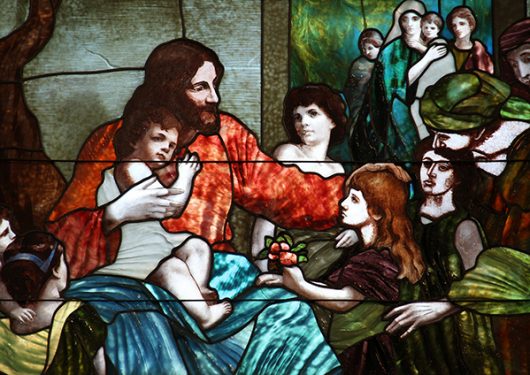Sixth in a series
Reflecting back on my experience of my years of teaching philosophy, especially teaching about the mystery of the human person, I am very aware of how much my views of what it means to be a human person have changed. Lately because of what I am reading and teaching I am very aware of how much my view of freedom has changed.
I was especially interested to learn what N.T. Wright would say in his chapter on freedom in his new book Broken Signposts: How Christianity Makes Sense of the World (New York: HarperOne, 2020, pp. 198, $27.99). Identifying freedom as one of seven signposts that seem to be “broken” in the contemporary world, Wright believes that in St. John’s gospel there are many wonderful insights that can help people become freer.

I suspect that when I started to teach philosophy I thought of freedom as a faculty everyone had through which choices were made. It took some time before I came to understand to some extent that there are some choices that are more freeing and some less freeing.
It may have taken even more time before I appreciated that because of our freedom we hold our lives in our hands and that through our choices we co-create ourselves with God. Obvious examples of actions that are less free are actions that spring from an addiction such as an addiction to alcohol or drugs, I knew a reformed alcoholic who claimed that when he was at the mercy of his addiction, he could not leave a room as long as there was a drop left in a bottle.
Wright points out the following:
“So if we all know that freedom is important, socially, and personally, but we all find it harder than we expected to figure out what it actually means, where do we go for help? The Bible shows us that our instinct for freedom has everything to do with the sense of the presence of God. Freedom, we find, is the central story God wants for his people — including both freedom from things like sin and idolatry and freedom for being loved. The story John tells in his gospel, like the story we find woven deep in the texture of Paul’s thought, is the story of how the Creator God has provided not only a new freedom, but a new kind of freedom. The Exodus, it turns out, is not only an event in Israel’s past history, but a promise for the whole creation, a promise Jesus makes real for all his followers.” (pp. 119-120)
I confess that for much of my life I thought of the event of the Jewish Passover, the journey of the Jews from slavery under the Egyptians, a journey away from pagan domination to liberation by passing through the Red Sea, primarily in terms of the physical miracle of passing through the Sea.
The most important meaning of the story reveals that God’s presence to the Jewish people was a presence which freed them and identified them as God’s people.
God’s loving presence to people offers people the possibility of reaching a new level of freedom. Possibly the easiest way of realizing that being loved offers the beloved an opportunity to become freer is to recall times when someone’s love liberated us.
I am certain that everyone who is reading this column could recall experiences in which someone’s love liberated them. That love might be from a parent, a sibling, a spouse, a close friend. Being loved opens doors for us. The experience of being loved is an invitation to grow, an invitation to become freer.
If we do not accept the self-gift from the one who loves us, perhaps nothing happens, but if we accept the love offered by the lover, we are welcoming a great gift into our lives, probably the greatest gift.
People who love us offer us freedom by their love. St. John depicts Jesus as someone who promises to be a loving presence in our lives always. Because of Jesus’ love, there is no limit to how free we can become.
The holiest people are the freest people. Jesus was the freest person who ever lived. Wright, commenting on our response to love, writes the following:
“And as we respond we discover, as one old song put it, that ‘freedom’ means the time I’ve been loved Something about love- anyone’s love- creates a kind of freedom, a new space, a new world. Something about God’s love becoming human in Jesus and dying on the cross brings about a new creation, and invites each of us to inhabit it. A new world. A free world. Free people within a free world.” (pp. 130-131)
God is all yes in relation to us. If we say yes to God’s offer of love, we may experience a freedom and a joy that is unimaginable.
Father Lauder is a philosophy professor at St. John’s University, Jamaica. He presents two 15-minute talks from his lecture series on the Catholic Novel, 10:30 a.m. Monday through Friday on NET-TV.
